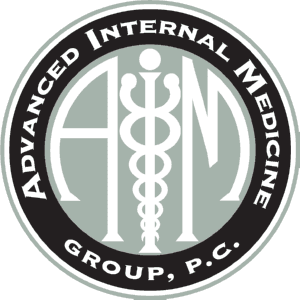As we celebrate National Nutrition Month, it’s the perfect time to focus on the nutrients that many of us tend to overlook in our daily diets. Despite living in a time with abundant access to food, certain essential nutrients are still commonly missing from the typical American diet. These nutrients play critical roles in maintaining optimal health, energy levels, and overall well-being. Let’s look into some of the nutrients that are often lacking, and explore ways to boost them through food.
Nutrients Often Missing From the American Diet
- Fiber. Fiber is essential for digestive health and helps regulate blood sugar levels, control weight, and lower the risk of heart disease. Unfortunately, most Americans consume less than half of the recommended daily intake of fiber. Foods like fruits, vegetables, whole grains, and legumes are fiber-rich, but they are often overlooked in favor of processed foods that lack fiber.
Boost Your Fiber Intake:
- Add more beans, lentils, and peas to salads or soups.
- Opt for whole grains like quinoa, brown rice, and whole wheat pasta instead of refined grains.
- Snack on fruits like apples, pears, or berries, and add vegetables like carrots and celery to your meals.
- Vitamin D. Vitamin D is crucial for bone health, immune function, and even mood regulation. While it’s naturally produced by the body when exposed to sunlight, many people—especially those living in northern climates or who work indoors—lack sufficient vitamin D. A deficiency in this vital nutrient can lead to weakened bones, fatigue, and even mood swings.
Boost Your Vitamin D Intake:
- Include fatty fish like salmon, tuna, and mackerel in your diet.
- Drink fortified milk or plant-based milk alternatives.
- Get outside and soak up some sunlight when possible.
- Magnesium. Magnesium is essential for muscle and nerve function, blood sugar regulation, and bone health. It also plays a role in over 300 enzymatic reactions in the body. Yet, it’s one of the most commonly deficient minerals in the American diet. Processed foods, which are low in magnesium, dominate many diets, leaving people short on this important nutrient.
Boost Your Magnesium Intake:
- Snack on nuts and seeds, such as almonds, cashews, and pumpkin seeds.
- Include leafy green vegetables like spinach and kale in your meals.
- Add legumes like black beans and chickpeas to salads or soups.
- Omega-3 Fatty Acids. Omega-3 fatty acids are essential for brain function, reducing inflammation, and supporting heart health. These healthy fats are often under-consumed, especially in diets that are low in fish and other omega-3-rich foods. A deficiency can contribute to increased inflammation, poor heart health, and cognitive decline.
Boost Your Omega-3 Intake:
- Include fatty fish such as salmon, sardines, and mackerel in your diet.
- Snack on walnuts, chia seeds, or flaxseeds.
- Try algae-based supplements if you’re not fond of fish.
- Potassium. Potassium is vital for proper cell function, muscle contractions, and maintaining healthy blood pressure levels. Many Americans don’t consume enough potassium, often due to a lack of fruits, vegetables, and legumes in the diet. Sodium-heavy processed foods also contribute to an imbalance in potassium intake.
Boost Your Potassium Intake:
- Enjoy fruits like bananas, oranges, and kiwi.
- Incorporate potatoes, sweet potatoes, and tomatoes into your meals.
- Add leafy greens like spinach and Swiss chard to smoothies or salads.
Superfoods to Add to Your Diet
Superfoods are nutrient-dense foods that provide a variety of health benefits, making them an excellent way to fill gaps in your nutrition. Here are some top superfoods to consider adding to your diet:
- Berries (Blueberries, Strawberries, Raspberries): High in antioxidants, fiber, and vitamin C, berries help support immune function and reduce inflammation.
- Kale: This leafy green is packed with vitamins A, C, and K, as well as calcium and fiber. It’s an excellent addition to salads, smoothies, and sautéed dishes.
- Chia Seeds: Loaded with omega-3 fatty acids, fiber, and protein, chia seeds are an easy addition to smoothies, oatmeal, or yogurt.
- Avocado: Avocados are rich in healthy fats, fiber, and potassium, making them great for heart health and providing sustained energy.
- Quinoa: A complete protein that’s also high in fiber, iron, and magnesium, quinoa can be used as a base for salads or served as a side dish.
- Sweet Potatoes: High in beta-carotene, fiber, and potassium, sweet potatoes are a delicious way to support eye health and maintain stable blood sugar levels.
- Nuts and Seeds (Almonds, Walnuts, Pumpkin Seeds): Packed with healthy fats, protein, and magnesium, these are perfect for snacking or adding crunch to salads and smoothies.
Quick Snack and Recipe Ideas
1. Superfood Smoothie
Blend together a handful of spinach or kale, a cup of berries, one tablespoon of chia seeds, half a banana, and your choice of milk or yogurt. This smoothie is packed with fiber, antioxidants, and omega-3s.
2. Energy-Packed Snack Mix
Combine almonds, walnuts, pumpkin seeds, and dark chocolate chunks for a nutrient-dense snack that’s high in healthy fats, protein, and magnesium.
3. Roasted Sweet Potatoes and Kale
Toss cubed sweet potatoes and kale with olive oil, salt, and pepper, then roast at 400°F for 25-30 minutes. This side dish is high in fiber, potassium, and antioxidants.
4. Avocado Toast with Chia Seeds
Spread mashed avocado on whole-grain toast and top with chia seeds, a sprinkle of salt, and pepper. This quick snack is loaded with healthy fats, fiber, and potassium.
5. Omega-3-Boosted Oatmeal
Cook oatmeal with flaxseeds and top with walnuts and fresh berries. This breakfast is rich in fiber, omega-3 fatty acids, and antioxidants.
National Nutrition Month is an opportunity to reflect on the foods we eat and how we can nourish our bodies more effectively. By focusing on getting enough fiber, vitamin D, magnesium, omega-3 fatty acids, and potassium, you can improve your health and well-being. Superfoods like berries, kale, quinoa, and avocado are a delicious way to add more nutrients to your meals, while simple snacks and quick recipes ensure that getting the right nutrition doesn’t have to be complicated. So, let’s make a conscious effort this month to eat better and embrace the power of whole, nutrient-rich foods.
AIM Group Offers Primary Care & House Calls In East Hills, NY
At Advanced Internal Medical Group in East Hills, NY we have 40 years of experience providing care with over 20 services in primary care, house call appointments, and more. To learn more about any of our services, call 516-352-8100 to speak with one of our team members.

